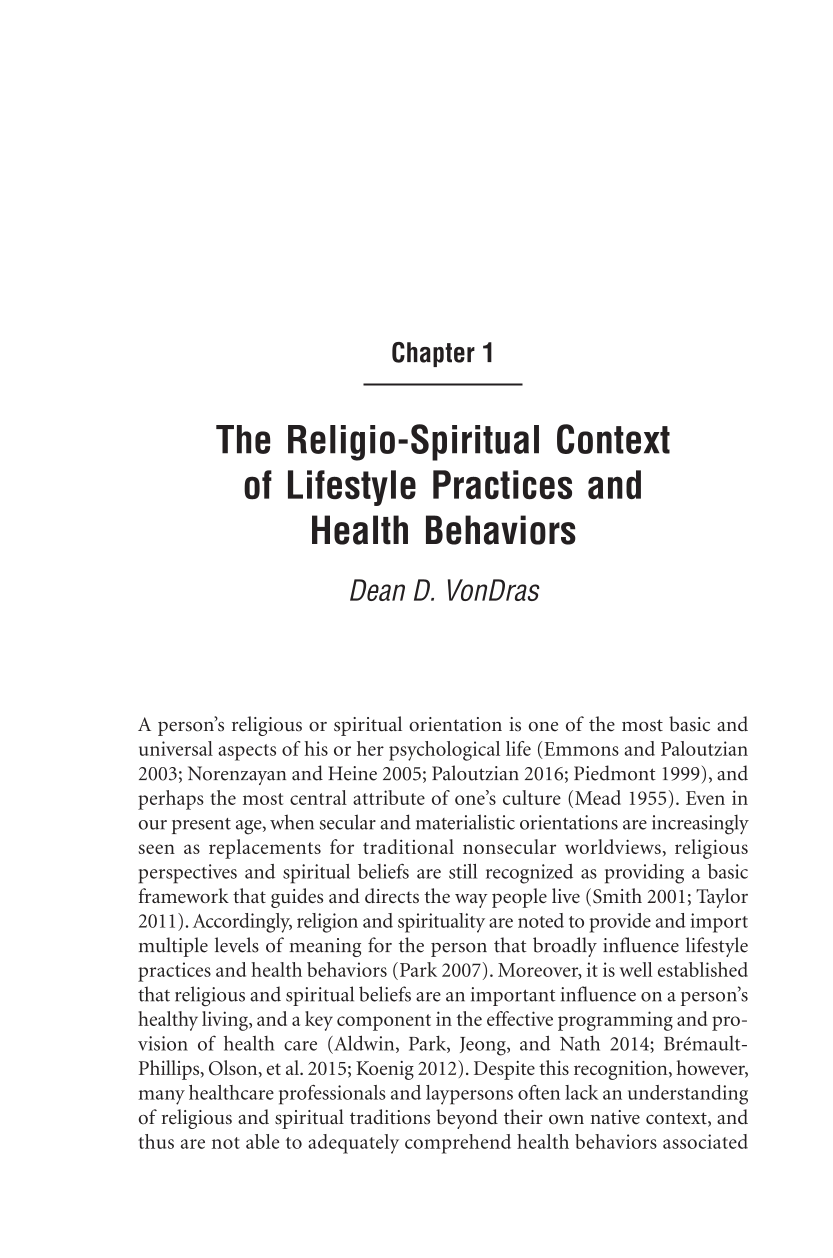Chapter 1
The Religio-Spiritual Context
of Lifestyle Practices and
Health Behaviors
Dean D. VonDras
A person’s religious or spiritual orientation is one of the most basic and
universal aspects of his or her psychological life (Emmons and Paloutzian
2003; Norenzayan and Heine 2005; Paloutzian 2016; Piedmont 1999), and
perhaps the most central attribute of one’s culture (Mead 1955). Even in
our present age, when secular and materialistic orientations are increasingly
seen as replacements for traditional nonsecular worldviews, religious
perspectives and spiritual beliefs are still recognized as providing a basic
framework that guides and directs the way people live (Smith 2001; Taylor
2011). Accordingly, religion and spirituality are noted to provide and import
multiple levels of meaning for the person that broadly influence lifestyle
practices and health behaviors (Park 2007). Moreover, it is well established
that religious and spiritual beliefs are an important influence on a person’s
healthy living, and a key component in the effective programming and pro-
vision of health care (Aldwin, Park, Jeong, and Nath 2014; Brémault-
Phillips, Olson, et al. 2015; Koenig 2012). Despite this recognition, however,
many healthcare professionals and laypersons often lack an understanding
of religious and spiritual traditions beyond their own native context, and
thus are not able to adequately comprehend health behaviors associated















































































































































































































































































































































































































